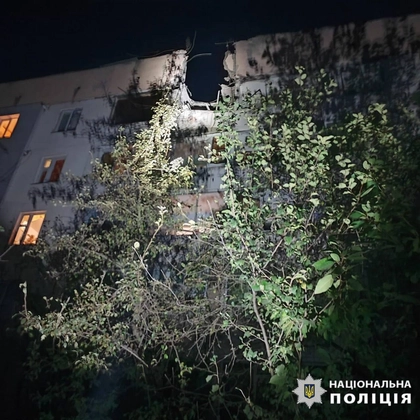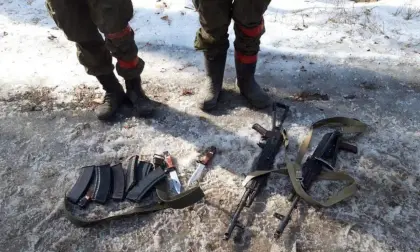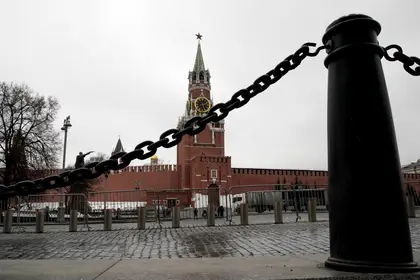The Russian Federation’s (RF) infantry shortages are so critical that its ground forces in Ukraine are now practically unable to launch serious ground attacks.
Russia’s military manpower problem likely only will worsen, according to personal interviews, news reports, soldier accounts, official statements and data conducted or reviewed by Kyiv Post.
JOIN US ON TELEGRAM
Follow our coverage of the war on the @Kyivpost_official.
A high profile and unpleasant example of what Moscow’s army personnel managers are up against came in late July when more than 200 members of the RF’s 810th Guards Naval Infantry Brigade, en masse, wrote letters of resignation.
An elite, Sevastopol-based outfit, the 810th was gutted in brutal house-to-house fighting in Mariupol, with at least 300 infantrymen killed and hundreds more seriously injured. Commanders were attempting to form a temporary Marine Infantry battalion from survivors and rear area personnel to send back to the fighting, at which Marine veterans of past combat during the invasion, practically unanimously, declared they preferred resigning and risking treason charges, rather than fight again in Ukraine as part of a truncated, untrained unit, UAI spokesman Vadym Skibidsky said.
The 810th Guards are not unique – by most estimates six months of war has eviscerated the Russian army of trained combat soldiers. According to Ukraine’s Army General Staff (AGS), since Russia’s invasion, RF forces suffered at least 45,000 soldiers killed from all causes. Pentagon and British Defense Ministry estimates are more conservative at 20-30,000 Russian dead but note that the Kremlin has almost certainly lost 60-80,000 men wounded as well.

Kyiv Hit by Massive Drone Attack as Russian Strikes Target Multiple Ukrainian Cities
On August 24, Defense Ministry Sergei Shoigu claimed – once again – that the “Special Military Operation” in Ukraine is “going to plan”. Speaking at the Shanghai Cooperation Organization (SCO) meeting in Tashkent, he argued Moscow’s ongoing and successful strategy is to defeat Kyiv using superior military equipment and skill, with minimal RF losses.
All non-Kremlin sources – including Russian soldiers telephoning home to their own relatives – paint an opposite picture: one of poorly-trained infantry units thrown into front line positions where they suffer crippling losses to accurate and unrelenting UAF artillery strikes.
An August 10 a DIA phone conversation intercept the DIA recorded an RF soldier describing the slaughter: “They (UAF artillery) f*cked our position to pieces, again lots of wounded…Only half of us survived, one in every two of us was wounded.”
Kyiv Post was unable to confirm the intercept’s veracity. However, in content and tone it was consistent with hundreds of other recorded RF service member phone conversations made public since February. Individual accounts from RF combat unit members for months have told of losses of 30-50 percent of pre-war strength, devastating morale and combat readiness.
Danil Frolkin, a member of the RF’s Khabarovsk-based 64th Independent Motorized Infantry Brigade, a formation fighting in the Kyiv and later Donetsk sectors, said in an August 19 interview with the Vazhnie Istorii web news agency that his unit suffered around 40% casualties and that four out of five survivors submitted resignation letters. Commanders simply refused to accept them, he said.
“I wrote several statements I refuse to fight, and (brigade command) told me to f*ck off,” Frolkin said. “They won’t end my contract and they won’t let me go home.”
The Russian military service member’s advocacy group Soldiers’ Mothers (SM) has, since the outset of the war, logged hundreds of letters from Russian troops in Ukraine, or their relatives, begging the army chain of command allow soldiers like Frolkin to resign per the terms of his contract with the military.
SM records document an army-wide policy of retaliation against men wanting to leave the service. Recent (July) examples include a soldier from Karachay-Cherkessia. When his wife became pregnant with the couple’s third child, the two-year combat veteran applied for leave on personal grounds. The unit command locked him and eight others into barracks, beat him, and threw all leave requests out, he claimed.
A Chechnya-based enlisted soldier wrote that after attempting to resign his commanders locked him in a basement for 10 days.
Three Luhansk-based officers on July 16 “refused to carry out a combat mission” and handed in their resignations. Per SM records, RF military police handcuffed the trio and handed them over to the mercenary Wagner Group. Family members have lost contact with them.
According to the British Ministry of Defense intelligence service, Wagner Group, a mercenary company closely-linked to the Kremlin, recently lowered its admission criteria to allow prison inmates and less physically-fit men. The lowered induction standards were, reportedly, directly linked to heavy losses recently suffered by the Wagner Group during the June-July RF assault on Severodonetsk, Luhansk Region.
Reports from the front line, both by Ukrainian independent media and in individual front line soldier accounts to Kyiv Post, tell of badly-trained and poorly-motivated RF combat units. RF advances are halting and clumsy, making them easy artillery targets, those accounts say.
Russia’s campaign to fill the ranks, six months into the war, has become increasingly frenetic. According to RF military news platforms, the Kremlin high command is now combing previously-untouchable Strategic Rocket Forces for volunteers to fight in Ukraine, and transferring navy sailors to infantry combat units, sometimes with two weeks of crossover training or even less.
One recruiting gambit – promoting “volunteer” units raised at the region level – fell on its face, with a Ural city announcing in June that it would form a volunteer tank battalion of 160 men. By the end of July only 16 men had actually signed up, the DIA reported.
Independent Ukrainian media has widely reported military press gangs roving streets in RF-occupied cities. Civilians from occupied Kherson, Mariupol, Severodonetsk and Sviatihorsk confirmed to Kyiv Post by telephone and text message a military-age male, particularly aged 18-40, exits his home at real risk of being arrested, forced into uniform and sent to the front at gunpoint.
Russian President Vladimir Putin on Thursday, August 25 signed a decree planning to expand the size of the RF army by recruiting more volunteers, and possibly instituting a draft.
But Russia’s opposition, citing polling data purportedly gathered by the Kremlin, has claimed that were Putin to institute massed conscription more than half of Russia’s military age men would evade army service, and anti-draft demonstrations would likely be so large that the police might not be able to contain them.
“They (the Kremlin) are unable to create new units and they are unable even to reinforce existing ones,” Azerbaijan-based military expert Agil Rustamade told Kyiv Post in a telephone interview. “They are no longer able to attack…Meanwhile, the UAF is getting stronger.”
You can also highlight the text and press Ctrl + Enter






